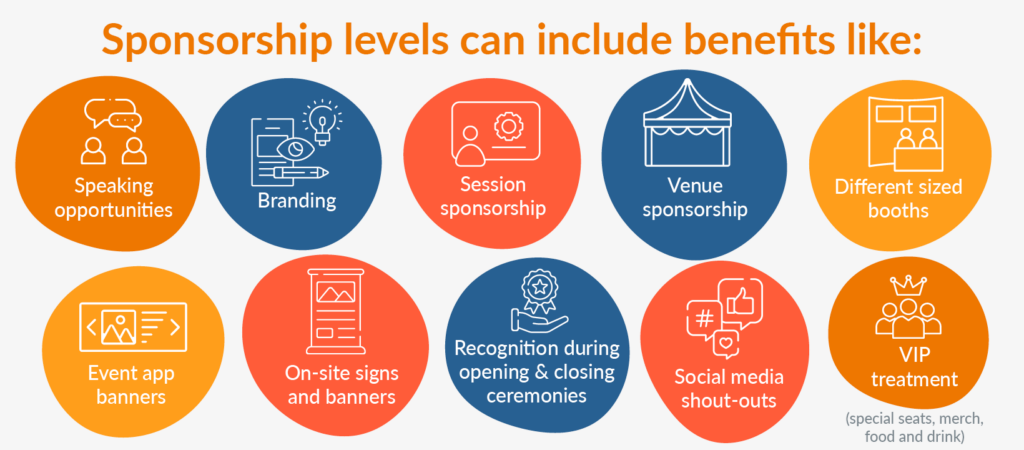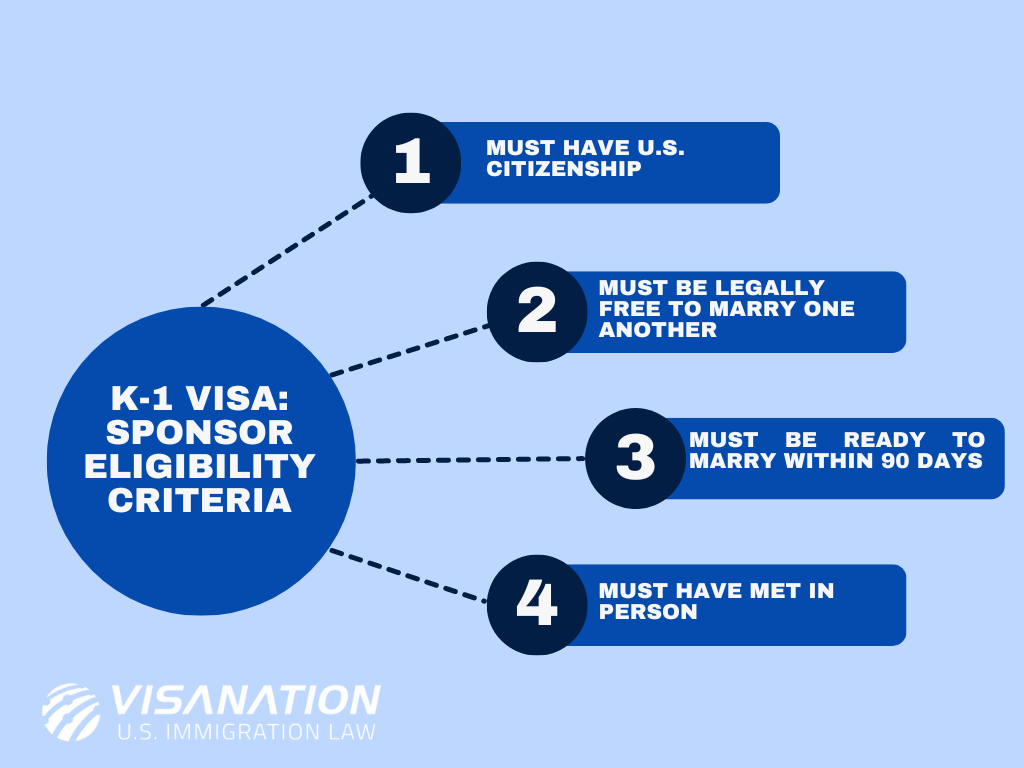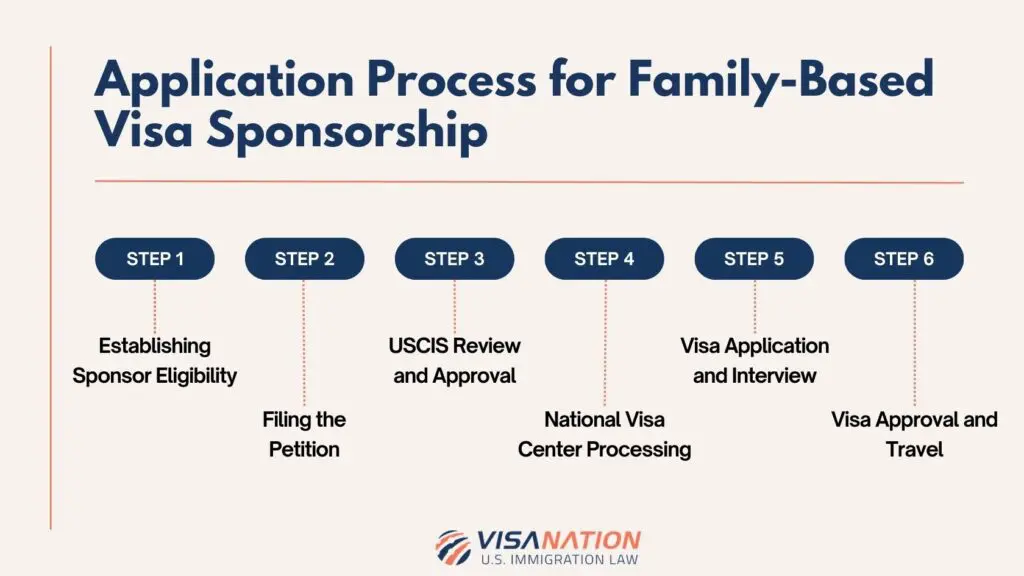Employer immigration sponsorship is crucial for many businesses. It helps them hire skilled workers from other countries.
Many companies need talent that isn’t available locally. Immigration sponsorship allows employers to bring skilled workers to their country. This can help fill gaps in the workforce and bring new perspectives. It is essential for businesses wanting to grow and innovate.
Understanding this process can help companies navigate complex immigration laws. It also benefits employees seeking opportunities abroad. In this blog post, we will explore how employer immigration sponsorship works. We will cover its benefits and challenges. This guide will help both employers and employees understand the essentials of immigration sponsorship. So, let’s dive in and learn more about this important topic.
You May Also Like:
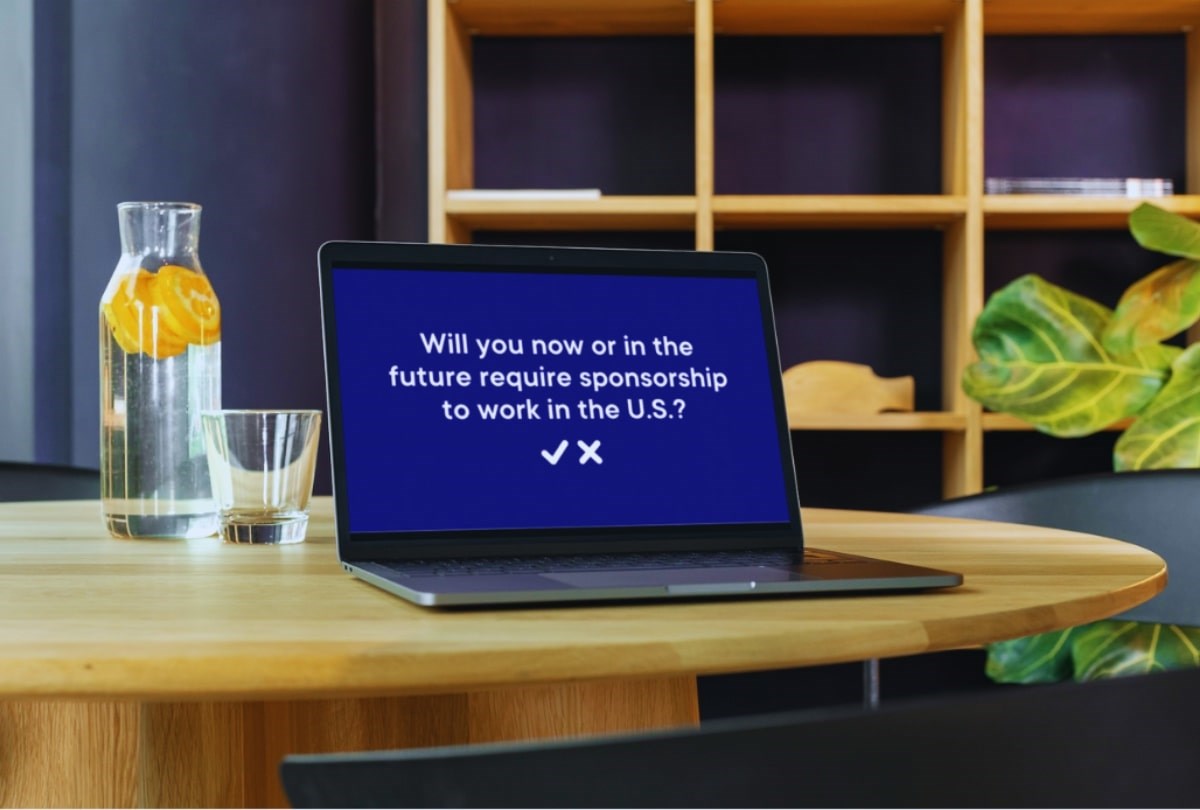
Employer Responsibilities
Employer Immigration Sponsorship is a crucial process for companies hiring foreign workers. Employers must follow specific rules and complete various tasks. Understanding these responsibilities is important for a smooth hiring process.
Legal Obligations
Employers have several legal obligations when sponsoring an immigrant worker. They must ensure compliance with immigration laws and labor regulations. Here are some key points:
- Verify the employee’s eligibility for the job and visa.
- Ensure the job position meets the required criteria for sponsorship.
- Pay the appropriate wages as per the law.
- Maintain accurate records of the employee’s work status.
- Notify the authorities of any changes in employment status.
These obligations help protect both the employer and the employee. It ensures that the employment is lawful and fair. Employers must stay updated with changing laws to avoid legal issues.
Document Preparation
Preparing the necessary documents is a vital part of the sponsorship process. Employers must collect and submit various documents. This ensures the application is complete and accurate. Important documents include:
| Document | Description |
|---|---|
| Job Offer Letter | Details the job role, salary, and terms of employment. |
| Employee’s Resume | Shows the employee’s qualifications and experience. |
| Proof of Eligibility | Includes passport, visa, and work permit copies. |
| Employer’s Business License | Confirms the legitimacy of the business. |
Accurate documentation is essential for a successful application. Employers should double-check all documents for errors. Missing or incorrect information can delay the process.
Types of Sponsorship
Employer immigration sponsorship allows companies to hire workers from other countries. This can be for short-term or long-term employment. Understanding different types of sponsorship is key. It helps both employers and employees know their options. This blog will explore the types of sponsorship available.
Temporary VS Permanent
Employer immigration sponsorship falls into two main categories: temporary and permanent. Each has its own set of rules and benefits.
Temporary sponsorship is for short-term jobs. This type of sponsorship is ideal for projects or seasonal work. Workers can stay in the country for a limited period. Here are some key points:
- Limited stay – Workers can only stay for a specific time.
- Project-based – Often used for specific tasks or projects.
- Renewal – Some temporary visas can be renewed.
Permanent sponsorship, on the other hand, is for long-term employment. This type allows workers to stay indefinitely. It often leads to a path to permanent residency. Here are its main features:
- Indefinite stay – Workers can stay as long as they wish.
- Family inclusion – Family members can often join the sponsored worker.
- Residency path – Can lead to permanent residency.
Choosing between temporary and permanent sponsorship depends on the needs of the employer and the worker. Temporary sponsorship is flexible but limited. Permanent sponsorship offers stability but requires a longer commitment.
Work VISA Categories
There are different work visa categories under employer immigration sponsorship. Each category serves a specific purpose. Here are some common types:
| Visa Type | Description |
|---|---|
| H-1B Visa | For specialty occupations requiring a higher degree. |
| L-1 Visa | For intra-company transferees in managerial positions. |
| E-2 Visa | For investors or employees of investment companies. |
| O-1 Visa | For individuals with extraordinary abilities. |
Each visa category has specific requirements. For example, the H-1B Visa needs a bachelor’s degree or higher. The L-1 Visa requires working in a managerial role for at least one year. The E-2 Visa is for investors from treaty countries. The O-1 Visa is for those with exceptional skills in their field.
Choosing the right work visa category is essential. It ensures the process goes smoothly. Employers should consult with experts to make the best decision.
Application Process
Employer immigration sponsorship helps companies hire skilled workers from other countries. The process can be complex and requires careful planning. This guide will explain how to sponsor an employee and avoid common mistakes.
Step-by-step Guide
To start, you must understand the sponsorship process. Follow these steps to ensure a smooth application:
- Determine Eligibility: Check if your company and the employee meet the requirements.
- Job Offer: Provide a formal job offer to the potential employee.
- Labor Market Test: Sometimes, you need to prove that no local worker can do the job.
- File Petition: Submit a petition to the immigration authorities for approval.
- Provide Documentation: Gather and provide all necessary documents, such as job descriptions and financial statements.
- Wait for Approval: The authorities will review your application and decide.
- Employee Visa: Once approved, the employee can apply for a visa to enter the country.
These steps may vary based on the country’s immigration laws. Always check the latest requirements before starting.
Common Pitfalls
Several pitfalls can delay or derail your sponsorship application. Here are some common issues:
- Incomplete Documentation: Missing or incorrect documents can cause delays. Double-check everything before submitting.
- Incorrect Forms: Using outdated or incorrect forms can lead to rejection. Ensure you have the latest versions.
- Unclear Job Descriptions: Vague job descriptions can result in denial. Be specific about the role and required skills.
- Labor Market Test Errors: Failing to conduct or document the labor market test properly can cause issues. Follow the guidelines strictly.
Addressing these pitfalls early can save time and increase your chances of success. Always seek help from immigration experts if needed.
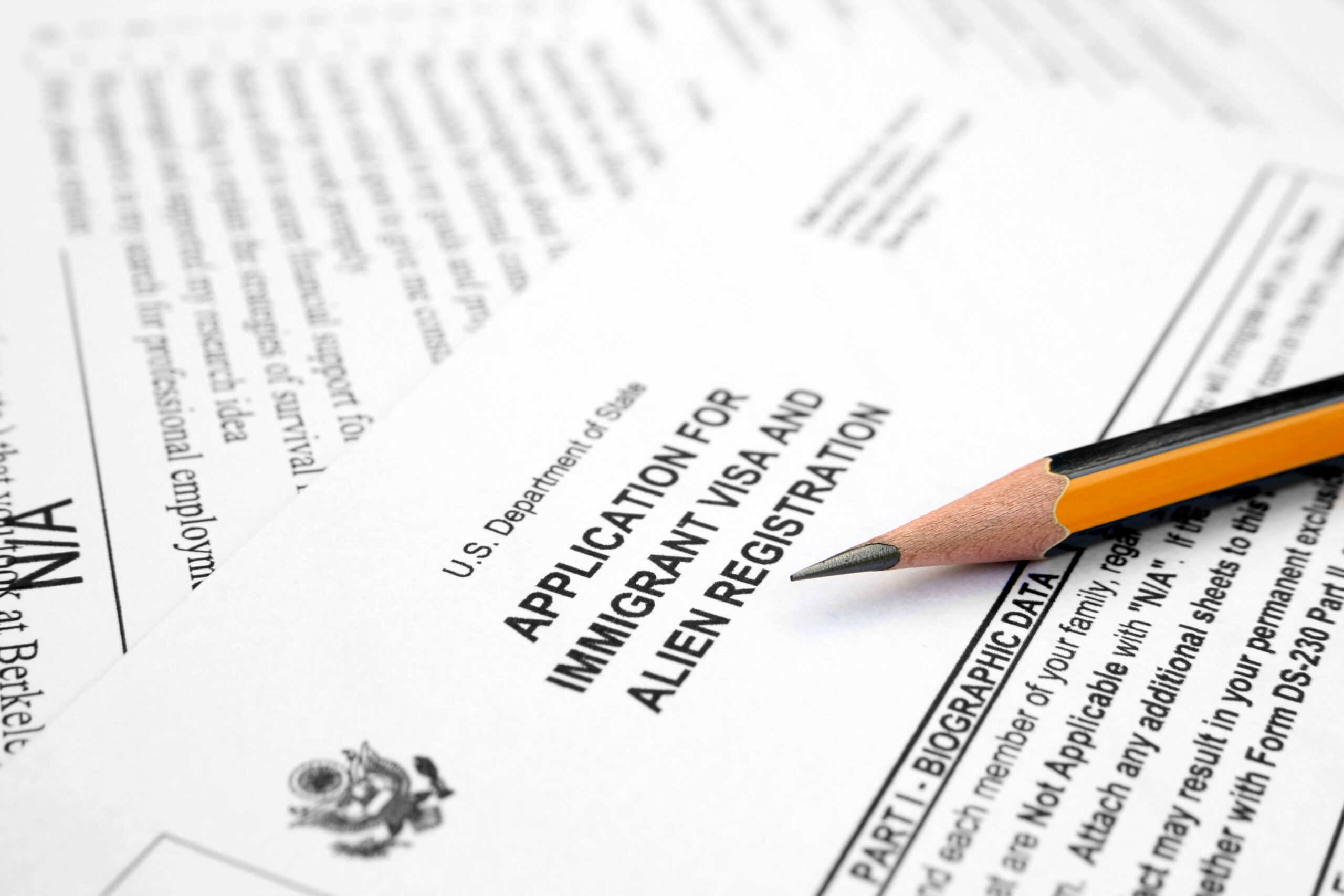
Costs Involved
Employer immigration sponsorship is a vital process for many businesses. It allows companies to hire talent from other countries. However, this process involves various costs. Knowing these costs helps in budgeting and planning.
Application Fees
Several fees are associated with the application process. These include:
- Filing Fees: The government charges for processing the application.
- Visa Fees: Costs vary depending on the visa type.
- Biometric Fees: Fees for collecting fingerprints and photos.
These fees add up quickly. For instance, filing fees can range from $460 to over $700. Visa fees may vary between $160 and $190. Biometric fees are usually around $85.
Here’s a quick breakdown:
| Fee Type | Cost (in USD) |
|---|---|
| Filing Fees | $460 – $700+ |
| Visa Fees | $160 – $190 |
| Biometric Fees | $85 |
Legal Costs
Legal costs are another significant expense. Employers often hire lawyers to navigate the complex process. Lawyers help with:
- Document Preparation: Ensuring all documents are correct.
- Legal Advice: Providing guidance on laws and regulations.
- Representation: Representing the company in legal matters.
Legal fees can vary widely. Some lawyers charge a flat fee for services. Others may charge by the hour. Hourly rates can range from $200 to $500. Flat fees may be between $1,000 and $5,000.
Here is a summary:
| Service | Cost (in USD) |
|---|---|
| Document Preparation | $1,000 – $5,000 (flat fee) |
| Legal Advice | $200 – $500 (per hour) |
| Representation | Varies |
Benefits to Employers
Employer immigration sponsorship allows companies to hire skilled workers from other countries. This practice brings many benefits to employers. It helps in finding the right talent and promoting a diverse workforce. Companies can gain a competitive edge in the global market. This post discusses the key benefits for employers.
Talent Acquisition
Finding the right talent can be challenging. Employer immigration sponsorship helps in accessing a global talent pool. This can be crucial for companies in need of specific skills. Here are some benefits:
- Access to a wider talent pool: Employers can find the best candidates from around the world.
- Filling skill gaps: Some industries face a shortage of skilled workers. Sponsoring foreign employees can fill these gaps.
- Enhancing innovation: Hiring talent from different countries brings new ideas and perspectives.
Consider this example:
| Industry | Skill Gap | Solution |
|---|---|---|
| Tech | Software Developers | Hire skilled developers from abroad |
| Healthcare | Nurses | Sponsor qualified nurses from other countries |
Employers benefit by finding the exact skills they need. This helps in improving productivity and achieving business goals.
Diversity and inclusion
Diversity and inclusion are essential for a healthy workplace. Employer immigration sponsorship promotes these values. Here are some benefits:
- Cultural exchange: Employees from different backgrounds bring unique perspectives.
- Enhanced creativity: Diverse teams are more creative and innovative.
- Better problem-solving: Different viewpoints lead to better solutions.
Employers who promote diversity are seen as progressive. This can enhance the company’s reputation. A diverse workforce also reflects the global market. It helps in understanding customer needs better.
Research shows that companies with diverse teams perform better. They have higher employee satisfaction and retention rates. Inclusion also leads to a more collaborative work environment. Employees feel valued and respected.
In conclusion, employer immigration sponsorship offers many benefits. It helps in acquiring the right talent and promoting diversity. These advantages lead to a more successful and innovative company.
You May Also Like:
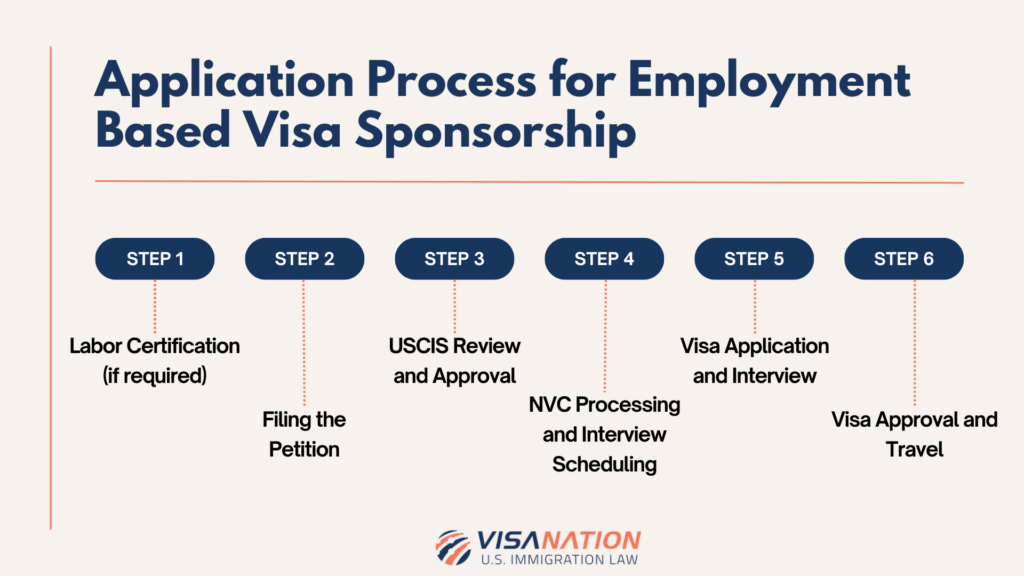
Challenges and Risks
Employer immigration sponsorship allows companies to hire talented workers from different countries. It can help companies find skilled employees. But, there are many challenges and risks involved. Employers must carefully manage these issues to avoid problems. This blog post will discuss some of the main challenges and risks.
Compliance Issues
Employers must follow strict rules and regulations. Failure to comply can lead to serious consequences. These consequences include fines and legal action.
Some common compliance issues include:
- Incorrect documentation: All paperwork must be accurate and complete.
- Visa expiration: Employers must keep track of visa dates to ensure timely renewals.
- Labor condition application: Employers must meet wage and working condition requirements.
To avoid these issues, employers can:
- Hire an immigration attorney
- Use software to track visas and compliance
- Regularly review and update procedures
Proactive management is key to avoiding compliance problems. Employers must stay informed and organized.
Employee Turnover
Employee turnover can be a big problem for employers. Losing a sponsored employee can be costly and time-consuming. Finding a replacement can take months. The process involves new visa applications and training.
Some reasons for employee turnover include:
- Better job offers: Employees may leave for higher pay or better benefits.
- Relocation: Employees might move to another city or country.
- Work environment: A poor work environment can lead to dissatisfaction.
Employers can reduce turnover by:
- Offering competitive salaries and benefits
- Creating a positive work environment
- Providing career growth opportunities
Employee retention is crucial for maintaining a stable workforce. Employers must address the reasons for turnover to keep valuable employees.
Future Trends
Employer immigration sponsorship is an important topic for companies. Businesses need skilled workers from around the world. Future trends in this area can shape the global workforce. Understanding these trends helps employers plan better. Knowing the future of immigration policies and the global talent market is key for growth.
Policy Changes
Policy changes can have a big impact on employer immigration sponsorship. Governments often update rules to control immigration. These changes can help or hurt businesses. It is important for companies to stay updated on new policies.
Here are some possible policy changes:
- Stricter visa requirements: Some countries may make it harder to get work visas.
- Quota limits: There may be limits on the number of visas given each year.
- Faster processing times: Some governments may speed up the visa process.
- New categories: New types of visas may be created for specific industries.
Changes in policies can affect the number of skilled workers available. Employers must adapt to these changes quickly. Staying informed helps companies avoid problems. It also helps them take advantage of new opportunities.
Global Talent Market
The global talent market is always changing. Employers need to understand these changes to find the best workers. Different factors affect the availability of skilled workers. Economic conditions, education levels, and technology are some of these factors.
Here are some trends in the global talent market:
- More remote work: Many companies now hire remote workers from different countries.
- Higher demand for tech skills: Skills in technology are needed in many industries.
- Growing competition: Companies compete to hire the best talent from around the world.
- Focus on diversity: Employers value diverse teams for better performance.
Understanding these trends helps employers stay ahead. They can create better strategies to attract and retain talent. The global talent market offers many opportunities for growth. Companies that adapt to these changes will succeed.
Conclusion
Employer immigration sponsorship offers valuable opportunities. It supports both employers and employees. Navigating the process can seem complex. But the rewards are worth it. Employees gain stability and growth. Employers benefit from diverse talent pools. Proper planning ensures success. Seek professional help if needed.
This will simplify the journey. Stay informed about regulations and requirements. A successful sponsorship can transform careers and businesses. Take the first step today. Embrace the potential benefits.

